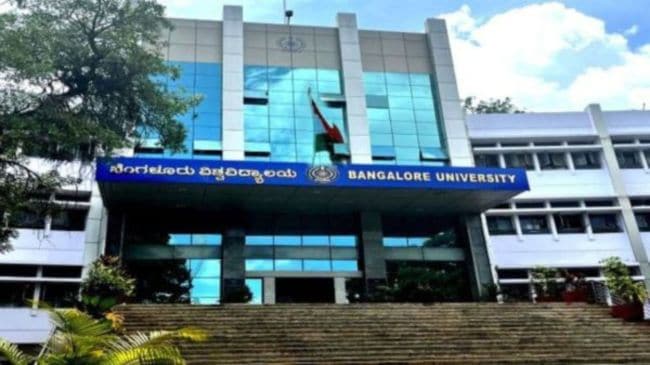Opinion Indian universities have a caste problem. A bit of empathy will go a long way
Many empirical studies based on university-level data show that marginalised social groups suffer from a lack of systemic support in university spaces and are under-represented in most academic bodies and programmes
 Over the last decade, rather than being emancipatory spaces, Indian universities have functioned as a site of epistemic and social violence, where ideological and social homogenisation has become an academic practice.
Over the last decade, rather than being emancipatory spaces, Indian universities have functioned as a site of epistemic and social violence, where ideological and social homogenisation has become an academic practice. Written by Vidyasagar Sharma
The recent Bangalore University controversy, where a group of Dalit faculty have written to the Vice-Chancellor and threatened to resign, has again cracked open how caste operates across academics. They alleged systemic caste discrimination in the delegation of everyday university affairs, including biased appointments and denial of service-related benefits. Such incidents, where faculty and students from Scheduled Caste (SC), Scheduled Tribe (ST), Other Backwards Class (OBC) and religious minorities are being treated differently from their privileged counterparts, is becoming increasingly common.
Within India’s current political situation, academic practices are redefined and reconstructed by the state. For instance, the faculty oriented to Marxist and anti-caste thinking has apparently been targeted by the university administration. Here, I attempt to highlight two sets of dominant practices in the Indian university system that are constructing a new kind of “outcast” in higher education.
University as a site of un-belonging
Noted sociologist Nira Yuval-Davis has argued that the sense of belonging is not just about including someone, but about the politics of belonging, performed through various mechanisms which often manifest as boundaries (“us” and “them”). These boundaries are constantly negotiated and contested by the people who create them and those who seek to dismantle them. Within India’s university landscape, elite public institutions are becoming spaces that practice homogenisation, thereby producing experiences of “un-belonging” for marginalised groups who do not fit within dominant cultural, ideological, and social practices.
Universities, while often imagined as liberal and critical spaces, frequently operate through hidden scripts of academic practices that silence diversity and inclusiveness under the guise of “neutrality” and “merit.” The recent efforts to change the syllabus in the Department of Political Science at Delhi University are just one of many interventions to silence diverse voices. Teaching critical topics such as Hindu nationalism, Dalit subjectivity, and social exclusion makes those engaging with such subjects be seen as outsiders. I categorise them as “academic outcasts”. Over the last decade, rather than being emancipatory spaces, Indian universities have functioned as a site of epistemic and social violence, where ideological and social homogenisation has become an academic practice.
Practice of exclusion
In Indian universities, social identities become an essential attribute for marginalised faculty and students who are tacitly classified as undesirable and un-belonging. The everyday labelling and stigmatisation of these groups force them into dissociation from peers, colleagues, and social groups, hampering their ability to develop a sense of belonging on university campuses. Many empirical studies based on university-level data show that marginalised social groups suffer from a lack of systemic support in university spaces and are under-represented in most academic bodies and programmes.
Indian sociologists, Geetha B Nambissan and Srinivasa Rao, in their work “Sociology of Education in India,” pointed out that structural inequalities, cultural diversity, and the identities of different social groups mediate institutional learning practices at various levels of education. Institutions often uphold unwritten rules that negatively identify individuals and groups labelled as disadvantaged by their structural location and status. For instance, candidates from OBC communities are often identified as ‘Not Found Suitable – NFS’ in the recruitment of faculty in central universities.
Empathy: The only way forward
We must focus on the process of building an academic space where faculty and students from marginalised backgrounds can foster their sense of belonging in everyday university life. To do so, empathy is essential. Through this practice, we can reimagine university space as more liberal and critical. Empathy in this context is not merely a passive emotion but an active process of speaking and listening to each other, with a sense of political commitment and engaging with difference.
Such a practice requires institutions and allied stakeholders to recognise structural inequalities with a sense of moral accountability and create an ecosystem where marginalised voices are not merely included for the sake of representation, but to be part of every aspect of university life. Therefore, only through empathetic engagement can we build a university as a site of belonging.
The writer is a research scholar at the Faculty of Sociology, University of Bielefeld, Germany




